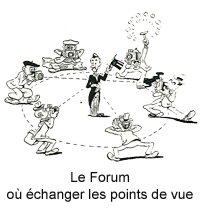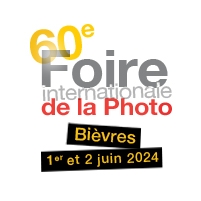|
Rodehuser Panta |
Manufactured or assembled in Germany from (After) 1949 to (Before) 1953.
Index of rarity in France: Rare (among non-specialized garage sales)
Inventory number: 6059
See the complete technical specifications
Chronology of cameras Rodehuser
Les appareils Rodehuser sont assez rares.
C'est par chance, que j'ai pu acquérir ce modèle peu après avoir découvert l'existence de la marque en visitant le musée de Graçay. Au cours de cette visite, j'avais photographié un premier exemplaire.
Celui présenté ici n'en diffère que par l'obturateur et l'objectif. Il est surprenant de découvrir un embryon de gamme pour ce qui reste une escroquerie. On peut aussi penser que les différences d'objectif et d'obturateur sont uniquement dues à des difficultés d'approvisionnement. Les fournisseurs ont peut-être eu des réticences à livrer une entreprise en route pour la faillite frauduleuse.

Der Spiegel (1955).
If unexpected events had not occurred, the largest man in Düsseldorf, a graduate of the business school, Dr. Heinrich Otterbach, 43 years old, could have been driving his imposing 335-pound body in a recently factory-fresh Mercedes 220, while comfortably managing his highly profitable business affairs. But fate took a different turn, rendering the Mercedes order null and void, as the business school graduate had to trade his economic expert office in Düsseldorf for a prison cell.
The prosecutor and the criminal police are still scratching their heads over how this imposing man managed to pull off the remarkable feat of siphoning off three-quarters of a million Marks from the public coffers of the Ministry of Finance in the state of North Rhine-Westphalia, Düsseldorf. The money used by the economic adviser to bail out deficit-ridden companies in North Rhine-Westphalia was from the compensation fund for displaced persons (Editor's note: this refers to Germans who lived in pre-war German territories in Poland, such as Silesia, Pomerania, and Czechoslovakia).
In 1949, Dr. Theodor Rodehüser, 37 years old, who is also currently in detention, abruptly closed his medical practice in the mining town of Heeßen near Hamm. The country doctor preferred to spend his time on precision mechanics and optics. After a specialist sold him a new camera, Rodehüser began building cameras in his country house.
To avoid limiting himself to a mere hobby, he turned to the municipality of Bergkarren, which saw the arrival of the camera manufacturer as beneficial for the small mining town. Land was provided to Dr. Rodehüser for the construction of a "factory" with quickly granted public funds. A workshop was set up where Rodehüser developed his production. He believed he had a real chance in the market.
However, his speculations about the lag in West Germany soon turned out to be a mere optical illusion, as traditional optical companies in the Federal Republic produced 2.5 million cameras annually. Rodehüser's commercial hopes collapsed. He left for Brazil on November 2, 1953, to escape his creditors. But after only a few months, he was forced to return to West Germany as his travel visa had expired.
Meanwhile, the criminal police had sealed the offices of the indebted company. It was only then that Heinrich Otterbach, the resourceful financial adviser to Rodehüser, sprang into action. He recruited ten refugees who, according to the law on the compensation of burdens, were entitled to claim damages for wrongful detention. Those eligible could apply for a loan and receive an advance on their compensation. However, they had to prove that they could create "a secure means of subsistence" with this loan and meet the personal and professional requirements for a fresh start in life.
Otterbach brought together representatives from various trades, including a butcher, a watchmaker from Silesia, and a former editor-in-chief from Wanzleben near Magdeburg. He encouraged the refugees to apply for a loan and then collectively invest this money in the Rodehüser company, forming a limited partnership.
At the same time, Otterbach proposed to the Federal Office for Compensation at the Ministry of Finance of North Rhine-Westphalia that it would be economically beneficial to consolidate individual loans into an "overall contract" and manage them in a company that would offer a new existence to the beneficiaries. This plan was particularly well-received by the Federal Office for Compensation, especially since Otterbach was considered an expert in economic matters. Later, it turned out that the funds for the closed camera factory of Rodehüser were to be the source of income for the refugee investors in return for their participation. The administration merely issued a warning and allowed the refugees to take the risk of their investment.
Before the loan amounts were fixed, Otterbach made sure that the refugee investors met with Rodehüser's creditors to inform them of the imminent opening of a loan. As a result, the creditors granted a payment extension. Thus, Otterbach was able to avert imminent bankruptcy. On February 1, 1954, he traveled to the city of Hagen, accompanied by the refugees, to sign a notarial contract for a limited partnership at the bank Lunk & Co (which had already conducted some financial transactions with Rodehüser). The new company "Feinmechanisch-optischer Gerätebau Schück & Co" was born, and each of the ten refugee borrowers became a limited partner. The former boss, Dr. Rodehüser, was even welcomed into the new company as a limited partner with a share of 5000 Marks.
Otterbach appointed himself the first managing director (the company's headquarters were located in his economic advisor's office in Düsseldorf). He placed Konrad Schück, an expert in business and a former village mayor, as the second managing director and also a personally responsible partner. Schück's name was even given to the company.
Schück, originally from Schwarztal near Glogau in Silesia, had started in the meat business. After the war, Schück worked as a commercial representative in Gütersloh. Several times, he forgot to transfer the money to his company after collecting it. As a result of Schück's debts, the company lost the Mercedes 170 V with which the former mayor had gone on a business trip. Despite this setback, Otterbach had full confidence in Schück.
The other refugee limited partners also needed to establish new livelihoods to meet at least this requirement of the law. One by one, they were appointed as responsible individuals for the company, which employed 25 mechanics. Since Otterbach drew a monthly salary of 1500 Marks and Schück received 1300 Marks, the other limited partners insisted on an appropriate salary and a new car. However, this expenditure did not match the meager income from the camera factory.
Starting in the summer of 1954, the paychecks were no longer covered. The sales of the cameras produced in Bergkamen had completely stagnated. In the meantime, the commercial director was arrested in Bavaria for fraud because he no longer paid his hotel bills and because the management in Bergkamen could no longer send him money.
Despite another imminent bankruptcy, Otterbach managed to obtain the signatures for two additional loans from the Federal Office for Compensation. The last loan was paid in September 1954, when the sales of the cameras made in Bergkamen were at a complete standstill. Otterbach finally founded a direct sales company because most camera shops in West Germany refused Schück & Co. cameras.
It was during this critical period that the economic adviser, who apparently had very good relations with the Federal Office for Compensation of North Rhine-Westphalia, implemented his second consolidation operation for refugee loans. At the location of the former Reckling-Hoffmann company in the Eiserfeld district of Siegen, he founded the company for steel tubing and engineering, Dr. Otterbach-Kattner & Co. KG, known as Staroma.
Otterbach found only four refugee candidates willing to participate. As he needed a fifth candidate to reach the required loan amount, he persuaded a former professional musician who had become an accountant to get stamped as a war-disabled person. Otterbach presented him as a former music teacher who had lost his music school due to the war. Based on these indications, the accommodating officials granted the musician accountant a loan of 15,000 Marks with the obligation to propose himself as a new limited partner to Otterbach.
In the new Staroma company (of which 215,000 Marks in capital came from indemnities), Otterbach took on the role of director with a monthly salary of 1500 Marks. Apart from his business advisor's office, he now owned two companies that could be linked through a pyramid scheme. Staroma, a successful company, issued promissory notes.
These promissory notes were given to unsuspecting suppliers instead of cash. Presented in Bergkamen, they were refused due to insolvency by Schück, who had to stall the protesters.
By the end of January 1955, about fifty of these promissory notes were still circulating in West Germany. In the meantime, the telephone, electricity, gas, and water had been cut off at Schück & Co. The company ceased production as soon as the 250,000 Marks were spent.
The Attorney General and the criminal police are working to determine the amount that Otterbach put into the pockets of two department heads at the Federal Compensation Office. The director of the Düsseldorf office and ministerial counselor Schmitt-Degenhardt stated, "The two have been arrested because they are suspected of receiving money and gifts from applicants in exchange for processing their claims. The criminal police also know that in Dortmund, Otterbach paid public administration employees: 'large sums of money were transferred there.' One of Otterbach's friends, who had worked at the Federal Compensation Office, is still in pretrial detention in Düsseldorf. For a long time, the shameful label "on vacation" will be on his door.
Interesting links or bibliography :
Add a link or element of bibliography, a picture taken with this camera, a picture of box or an ads about this camera
Your photos taken with the same camera:
Cameras from Ebay France (Rodehuser) (Uploaded each 3 hours)








